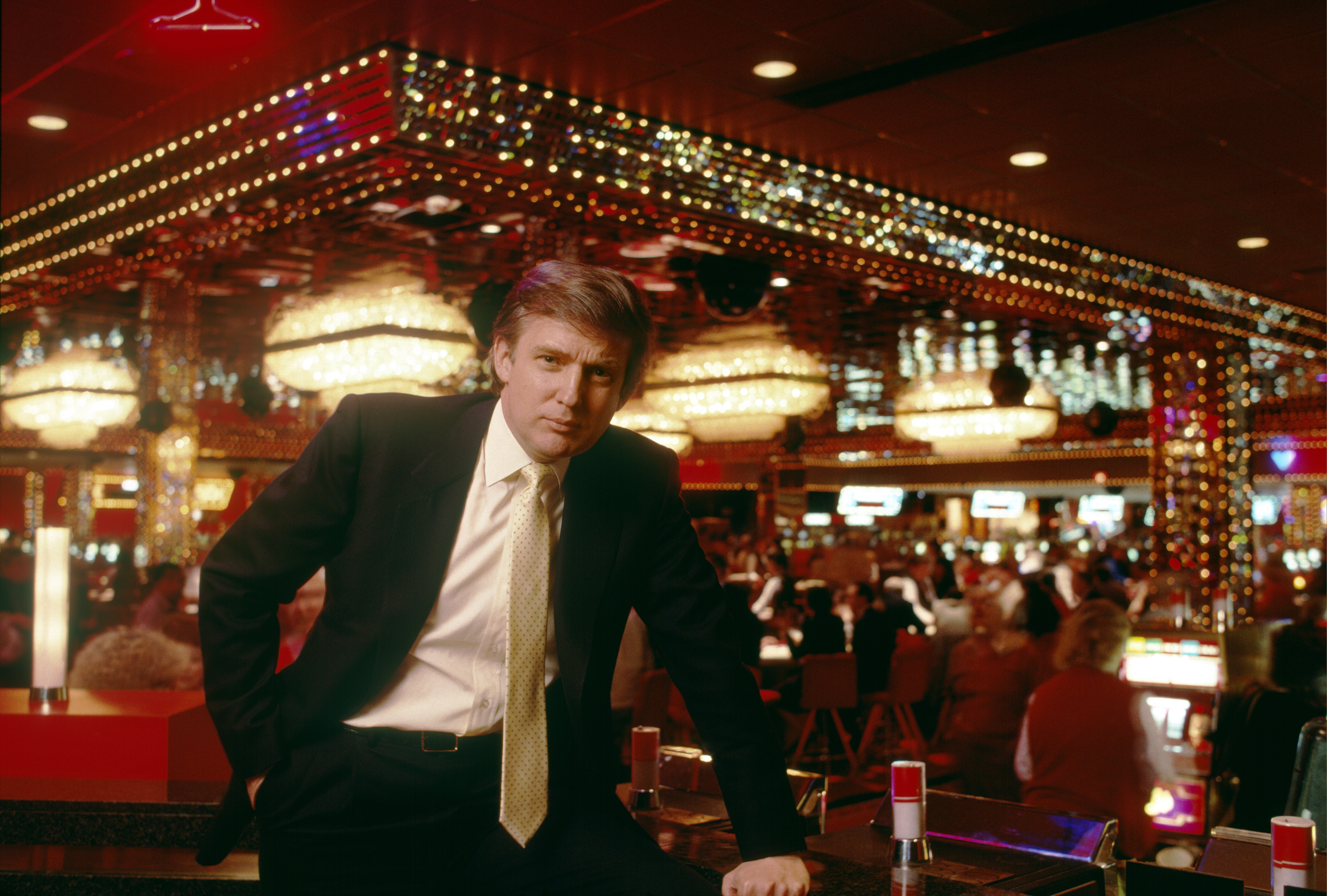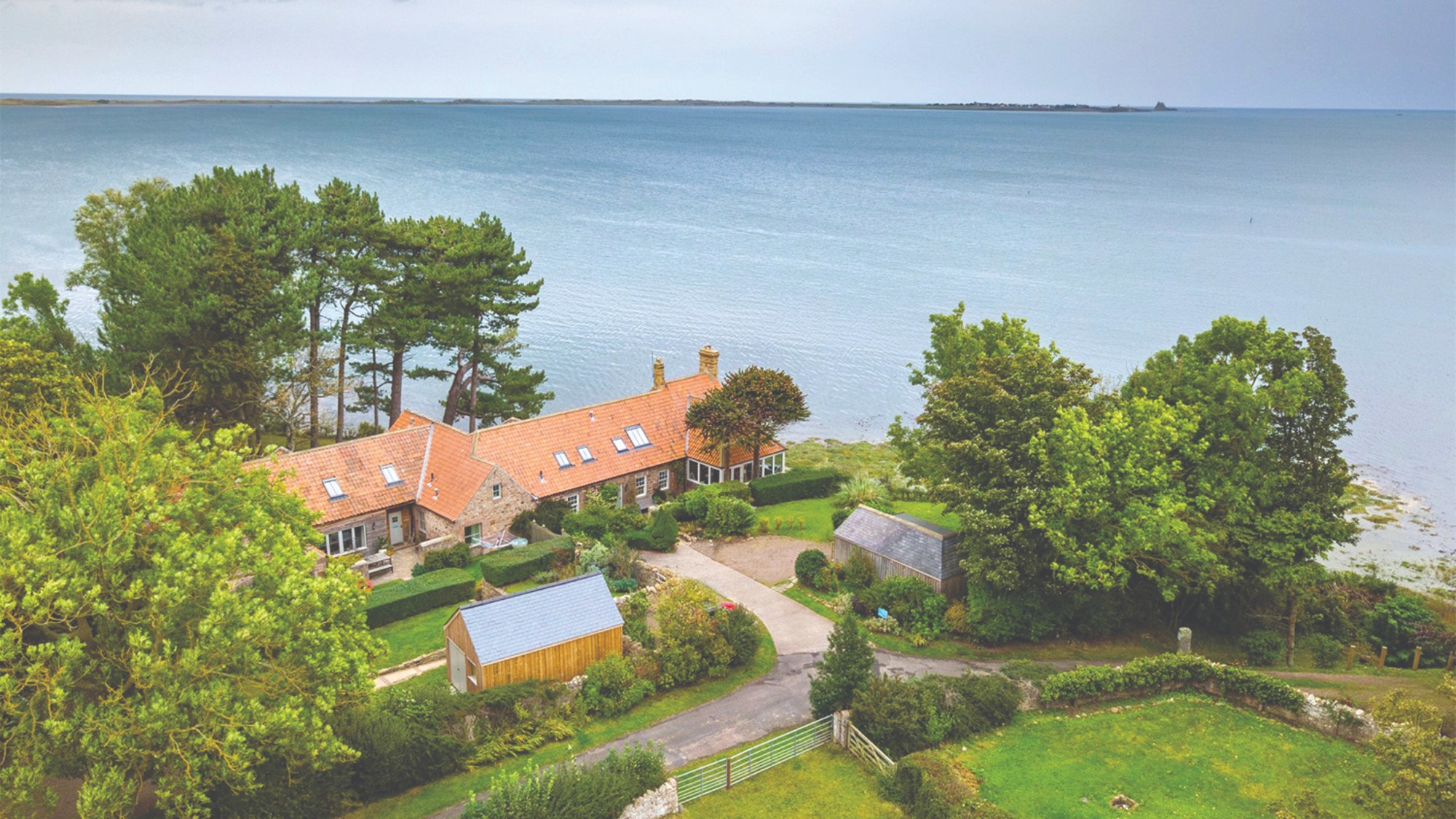How did Donald Trump make his money?
The Donald Trump story began when his grandfather, Friedrich, emigrated from Germany to America

A free daily email with the biggest news stories of the day – and the best features from TheWeek.com
You are now subscribed
Your newsletter sign-up was successful
The Donald Trump story began when his grandfather, Friedrich, emigrated from Germany to America. Here's everything you need to know about what's happened since:
How did Friedrich make his money?
He arrived in New York City in 1885, at age 16, hoping to make his fortune. Friedrich had grown up in Kallstadt, a small village in southwestern Germany, where the locals are known as Brulljesmacher, or "braggarts." His ancestral name was Drumpf, but the name was changed in the 17th century, possibly to improve the family's social status. After a few years working as a barber in New York City, Friedrich moved to Seattle, anglicized his first name to Frederick, and opened a small establishment in the city's red-light district. He offered customers round-the-clock access to food, liquor, and "private rooms for ladies" — code for prostitutes.
The Week
Escape your echo chamber. Get the facts behind the news, plus analysis from multiple perspectives.

Sign up for The Week's Free Newsletters
From our morning news briefing to a weekly Good News Newsletter, get the best of The Week delivered directly to your inbox.
From our morning news briefing to a weekly Good News Newsletter, get the best of The Week delivered directly to your inbox.
Was the brothel a success?
It was, and the ambitious Trump decided to take his services where the money was, relocating to the Yukon to take advantage of the Klondike Gold Rush. In his saloons-cum-brothels there, the bedrooms had scales so customers could pay for services with gold dust. In 1901, the regional police chief ordered a crackdown on gambling, liquor sales, and "the scarlet women." Trump fled back to New York with a nice nest egg. During a visit home to Kallstadt, he got engaged to a local woman, Elizabeth Christ, and tried to resettle in Germany. But the authorities deported him for dodging military service during his years in America. So the couple moved to New York, and when Friedrich died at age 49 from Spanish flu in 1918, it was his son Fred who continued the family's entrepreneurial legacy.
In what way?
Fred set up a garage construction business with his mother when he was still in high school. Elizabeth Trump and Son was a huge success, and in the 1920s the budding real estate mogul began building single-family houses in the borough of Queens. He was notoriously frugal, known for walking around his construction sites picking up dropped nails. In 1936, Trump married a Scottish immigrant named Mary Anne MacLeod; the couple's five children included Maryanne, now a senior federal appeals court judge, and Donald. After World War II, Trump Sr. took advantage of large federal housing grants to build rental apartment complexes in Brooklyn and Queens. Realizing that his German heritage might be a hindrance to business, he claimed his parents were Swedish. "He had a lot of Jewish tenants," explained his nephew, John Walter. "It wasn't a good thing to be German in those days."
A free daily email with the biggest news stories of the day – and the best features from TheWeek.com
How wealthy was Fred Trump?
By the 1970s, Fred was a multi-millionaire. When he died in 1999, he was worth as much as $300 million. But Fred's career wasn't without controversy, particularly on racial matters. He was arrested in Queens in 1927, after a street battle at a Ku Klux Klan rally. In 1973, the family firm and Donald Trump himself were sued by the Justice Department for allegedly discriminating against black people who wanted to rent apartments; the applications of blacks, an investigation had found, were marked with a "C" for "colored" and were inevitably declined. The company eventually settled and agreed to put in place anti-discrimination measures.
How did Donald make his money?
He left Brooklyn and Queens behind and set out to make it big in the more glamorous environs of Manhattan. "I had loftier dreams and visions," he said. Only three years after graduating from college, Trump took a $1 million loan from his father and more than $100 million in bank loans his father helped secure for him, and leveraged it into a string of major building projects in Manhattan, including the Grand Hyatt Hotel, Trump Tower, and Trump Plaza. He also branched out into golf courses, luxury resorts, and dozens of other industries (see below). A natural showman, Trump — who also originally told people he was Swedish — understood the value of marketing himself. "If I take out a full-page ad in The New York Times to publicize a project, it might cost $40,000," he said in 1987. "But if The New York Times writes even a moderately positive one-column story about one of my deals, it doesn't cost me anything."
Has he made any bad deals?
Many. He bought a team in the upstart United States Football League, then helped bring about the league's collapse by moving its season to compete head-to-head with the NFL's. His Atlantic City casinos led to four company bankruptcies, almost wiping out his personal fortune. Trump Airlines lasted only three years. Thousands of former students are suing the now-defunct Trump University, which New York state officials call "a classic bait-and-switch scheme." But Trump has kept growing his fortune, largely by building his brand through books and a reality TV show, developing golf courses and hotels, and successfully licensing the Trump brand name to other developers. Estimates of his current wealth vary widely, with Bloomberg.com pegging it at $2.9 billion. Trump insists he's worth $10 billion — a nice, round figure that makes him sound more successful. "This is a family," says biographer Gwenda Blair, "deeply steeped in the idea that you do whatever it takes to win."
Trump, the brand
Donald Trump has spent his life making his name synonymous with wealth and success, and for a price will put "Trump" on almost anything. In addition to the famous hotels, tower blocks, and golf courses, the billionaire's ventures have included Trump Steaks, Trump magazine, and TRUMP the board game. His fans can sip on Trump Water, Trump Wine, or Trump Vodka; they can kit out their homes with Trump Home Furnishings, wear the Donald J. Trump Signature Collection line of shirts and ties (made in Mexico and China), and put on Trump Fragrance (which "captures the spirit of the driven man"). Of the 515 firms in which he is involved, 268 have "Trump" in the company title. In one of his books, Trump himself acknowledged that things could have been very different if his ancestors hadn't changed the family name. "Drumpf Tower," he wrote, "doesn't sound nearly as catchy."
-
 What to watch out for at the Winter Olympics
What to watch out for at the Winter OlympicsThe Explainer Family dynasties, Ice agents and unlikely heroes are expected at the tournament
-
 Properties of the week: houses near spectacular coastal walks
Properties of the week: houses near spectacular coastal walksThe Week Recommends Featuring homes in Cornwall, Devon and Northumberland
-
 Will Beatrice and Eugenie be dragged into the Epstein scandal?
Will Beatrice and Eugenie be dragged into the Epstein scandal?Talking Point The latest slew of embarrassing emails from Fergie to the notorious sex offender have put her daughters in a deeply uncomfortable position
-
 Is the Gaza peace plan destined to fail?
Is the Gaza peace plan destined to fail?Today’s Big Question Since the ceasefire agreement in October, the situation in Gaza is still ‘precarious’, with the path to peace facing ‘many obstacles’
-
 Vietnam’s ‘balancing act’ with the US, China and Europe
Vietnam’s ‘balancing act’ with the US, China and EuropeIn the Spotlight Despite decades of ‘steadily improving relations’, Hanoi is still ‘deeply suspicious’ of the US as it tries to ‘diversify’ its options
-
 Trump demands $1B from Harvard, deepening feud
Trump demands $1B from Harvard, deepening feudSpeed Read Trump has continually gone after the university during his second term
-
 Trump’s Kennedy Center closure plan draws ire
Trump’s Kennedy Center closure plan draws ireSpeed Read Trump said he will close the center for two years for ‘renovations’
-
 Trump's ‘weaponization czar’ demoted at DOJ
Trump's ‘weaponization czar’ demoted at DOJSpeed Read Ed Martin lost his title as assistant attorney general
-
 Gabbard faces questions on vote raid, secret complaint
Gabbard faces questions on vote raid, secret complaintSpeed Read This comes as Trump has pushed Republicans to ‘take over’ voting
-
 Greenland: The lasting damage of Trump’s tantrum
Greenland: The lasting damage of Trump’s tantrumFeature His desire for Greenland has seemingly faded away
-
 The price of forgiveness
The price of forgivenessFeature Trump’s unprecedented use of pardons has turned clemency into a big business.